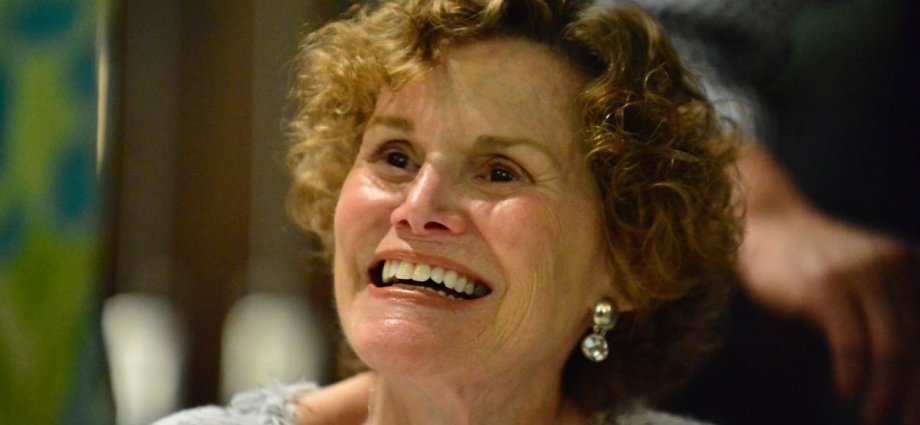More than half a century after being written, Judy Blume’s Are you there God? It’s me Margaret is finally hitting the big screen.
First published in 1970, the coming-of-age novel drew widespread acclaim – and controversy – for its depiction of taboo themes including puberty and religion. The upcoming film adaption, which stars Abby Ryder Fortson as Margaret, sticks closely to the original story of a young girl whose mixed-faith family (Christian mother and Jewish father) moves from New York City to the suburbs in New Jersey.
Despite having sold around 90m books in total worldwide, it has taken Blume a lifetime to get a “‘Yes’ from Hollywood” for one of her works, said The New York Times’s entertainment reporter Nicole Sperling. But now that the US author’s fans are old enough to “take charge in the entertainment industry”, a “Blume-aissance is upon us”.
Who is Judy Blume?
Blume was born in 1938 and raised in New Jersey, and has described her upbringing as culturally Jewish. She graduated from New York University in 1961 with a degree in education, but did not begin writing until after she was married with two children, publishing her first book in 1969. Now aged 85, Blume lives with her third husband in Florida.
Her bibliography of more than 25 novels has earned Blume a reputation as “a trailblazing champion” of previously taboo topics such as “sexual curiosity in young readers”, said Flickering Myth. This willingness to tackle tricky issues is highlighted in new documentary film Judy Blume Forever, premiering on Prime Video this week, which “opens with Blume reading a passage about masturbation from her famed 1973 novel Deenie”.
Various political and social groups have objected to Blume’s novels, five of which featured on an American Library Association (AL) list of the top 100 most banned books of the 1990s. Her 1975 novel Forever was censored due to its depiction of teen sex and the use of birth control, and there have been frequent calls for bans on Are you there God? It’s me Margaret, for its frank portrayal of menstruation and negative take on some of the Christian characters.
“As one of the most widely banned authors in American history”, said Selome Hailu in Variety, Blume “has some opinions on censorship”. The author told the magazine that she does not “believe” in Puffin Books’ recent move to publish updated editions of Roald Dahl’s books.
And she told The Sunday Times that she backed J.K. Rowling “100%” – although Blume later clarified on Twitter that she was talking about the harassment faced by Rowling, writing: “I wholly support the trans community.”
Blume’s 1970 novel is finally hitting mainstream cinemas as debate around book bans rages in the US. She recently told BBC One’s Sunday with Laura Kuenssberg that intolerance on issues ranging from gender and sexuality to race was now “worse than it was in the 80s”.
“It’s just reaching a point where again we have to fight back, we have to stand up and fight,” Blume said.
Journey to the big screen
Blume’s cinematic ambitions stretch back decades. Forever was turned into a 1978 made-for-television film but, for the most part, “there have been a lot of almosts, a lot of maybes”, Blume told The New York Times in 2004.
The writer and her son, filmmaker Lawrence Blume, adapted her 1972 novel Otherwise Known as Sheila the Great into a short movie that aired on ABC in 1991. Four years later, a TV series based on Fudge-a-Mania debuted on US TV.
Other opportunities have come and gone. Blume rewrote a Deenie script for Disney in 2004, “only to have it fall by the wayside when the studio switched its attention toward blockbusters”, said the paper’s Sperling. An adaptation of 1981’s Tiger Eyes was released in 2012, “but it didn’t do much to move the needle, grossing only $27,000 on tepid reviews”.
“I don’t know why things never worked,” Blume told Sperling. “Eventually you just say, ‘Eh, you know, let me write my books.’”
With the movie version of Are you there God? It’s me Margaret, which hits UK cinemas on 19 May, Blume is finally getting the Hollywood recognition that she has coveted for so many years. But when it comes to her “legacy”, Blume said that her ultimate goal was to have “touched lives”.
Blume has already “shaped the minds of millions”, said Hadley Freeman in The Sunday Times. More than any other author, she has taught kids about masturbation, menstruation and sex.
“Most of all,” wrote Freeman, “she taught them that it’s fine to be exactly what they are: ordinary kids.”











